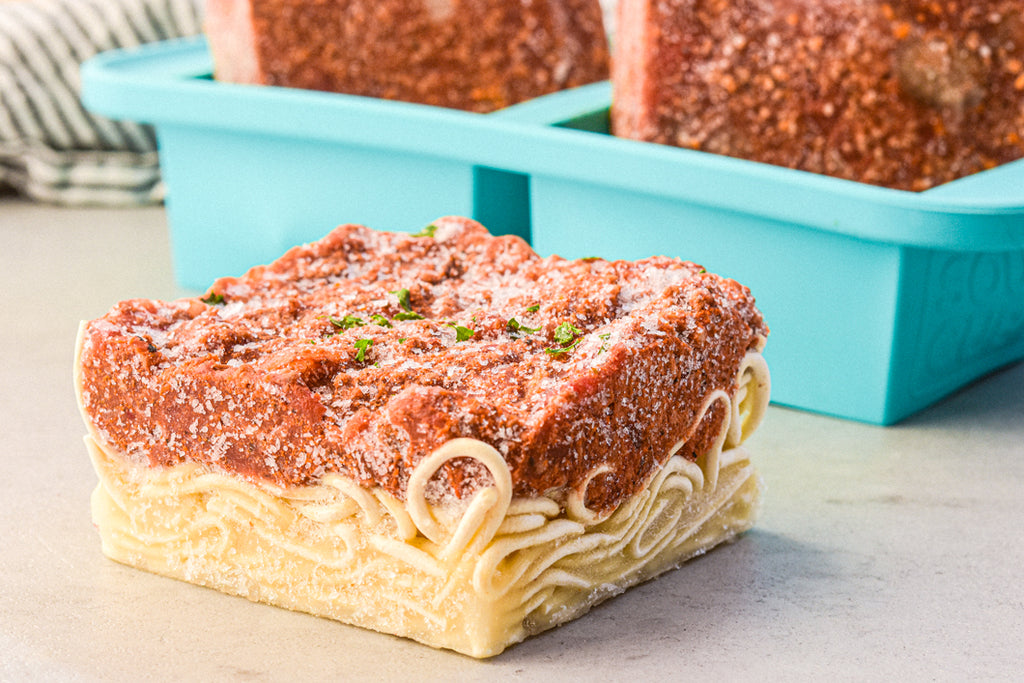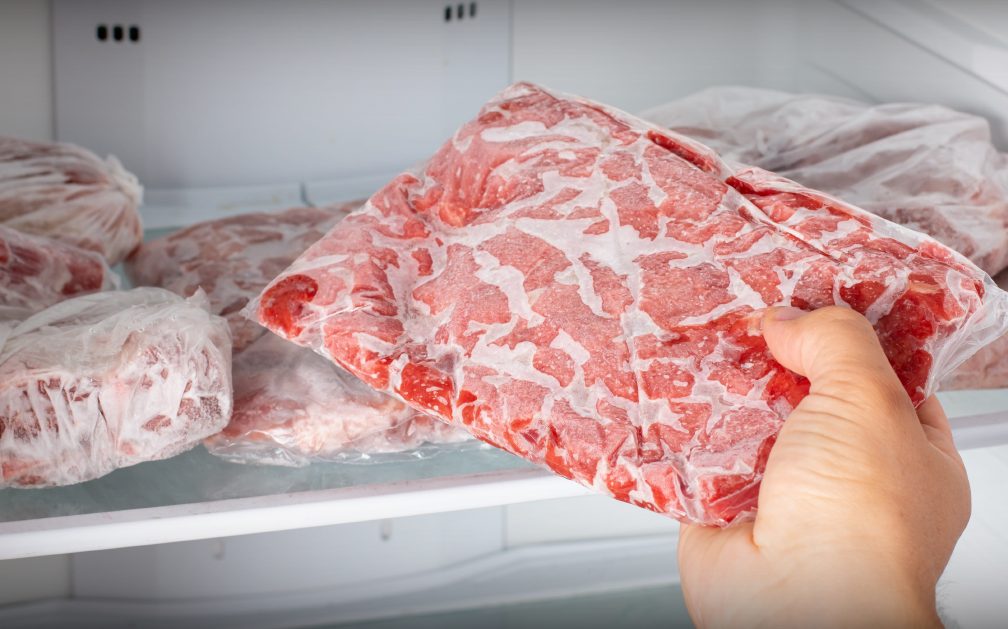Have you ever opened your freezer only to find that some foods just didn’t survive the cold? Freezing is a magical method for preserving food, but not every item belongs in the icy depths.
Stashing away the wrong foods can lead to mushy textures, off flavors, and disappointing meals. Imagine biting into a once-crispy apple that now tastes like a sponge, or mixing a once-smooth sauce that’s now a lumpy mess. If you’ve ever wondered why some foods just don’t make the cut, you’re not alone.
Knowing what to freeze and what not to can save you time, money, and a whole lot of frustration. In this ultimate list, we’ll reveal which foods should never be frozen and why. You’ll discover not only the science behind the freezing process but also practical tips to keep your meals delicious and fresh. Stick around, and transform your kitchen routine from freezer fails to food triumphs!
Dairy Products
Some dairy products should never be frozen due to texture changes. Freezing can alter creamy cheeses and milk, leading to separation. Yogurt and sour cream may become watery and lose their appeal when thawed.
Dairy products are a staple in many households, adding creaminess and richness to our meals. However, not all dairy items are freezer-friendly. Freezing can alter their texture and taste, leading to disappointing results. Let’s explore which dairy products should never be frozen and why.
Milk
Freezing milk might seem like a good idea to extend its shelf life, but it often leads to separation. When thawed, milk can become grainy and watery. This change in texture can affect the taste of your coffee or cereal.
You might have tried freezing milk after a grocery haul, only to end up with a curdled mess. Instead, consider buying smaller quantities or using milk powder as a backup. Have you ever noticed how fresh milk elevates your breakfast experience?
Soft Cheeses
Soft cheeses like brie and ricotta are delightful on crackers and pasta. But freezing them is a recipe for disaster. They tend to become crumbly and lose their creamy texture. This can ruin their intended smoothness and flavor.
Picture this: you planned a cheese platter for a party, only to find your brie has turned into a soggy mess. To avoid this, keep soft cheeses in the fridge and consume them within their expiry date. Would you want to risk your culinary masterpiece with a texture mishap?
Yogurt
Yogurt is another dairy product best left out of the freezer. When frozen, it separates and becomes gritty. This change can make your favorite smoothie taste less appealing. Have you ever tried freezing yogurt for a quick snack? The result is often disappointing, with a texture far from the creamy delight you expected.
Instead, opt for store-bought frozen yogurt, which is specially formulated to withstand freezing. Do you love starting your day with a perfectly textured yogurt bowl? By understanding which dairy products are freezer foes, you can make smarter storage decisions. How will you keep your dairy delights fresh and enjoyable?
Fruits And Vegetables
Certain fruits and vegetables lose their taste and texture when frozen. Lettuce wilts, cucumbers become mushy, and tomatoes lose their firmness. Avoid freezing these foods to maintain their natural freshness and flavor.
When you’re thinking about preserving your groceries, freezing is often the go-to method. It’s quick and convenient. But, did you know that not all fruits and vegetables take kindly to the icy depths of your freezer? Some of them lose their texture, taste, and nutritional value. Let’s dive into which fruits and vegetables you should avoid freezing and why.
Leafy Greens
Leafy greens like lettuce, spinach, and kale can become a soggy mess when frozen. They lose their crispness and become limp and mushy. If you’ve ever tried to add frozen lettuce to your sandwich, you know it’s a recipe for disappointment. Instead, consider using them fresh in salads or smoothies. You can also sauté them quickly for a tasty side dish. Have you noticed how fresh greens elevate your meal with their vibrant color and texture?
Cucumber And Celery
These veggies are packed with water, making them poor candidates for freezing. When thawed, cucumbers and celery turn into a watery, mushy consistency. This can be a big letdown if you’re expecting a refreshing crunch. Think about this: Would you want a soggy cucumber in your salad or a mushy celery stick for your snack? Instead, enjoy them fresh or add them to dishes just before serving.
Watermelon And Citrus
Freezing watermelon and citrus fruits can make them lose their juicy essence. Watermelon becomes grainy, and citrus fruits lose their refreshing burst of flavor. Have you ever tried eating a thawed slice of watermelon? It’s just not the same. Consider enjoying these fruits fresh or using them in drinks and desserts.
They offer that refreshing quality we all crave, especially on a hot summer day. Have you tried making a fresh citrus salad with a sprinkle of mint? It’s a game-changer for your taste buds. So, next time you think about freezing your produce, remember these tips. Preserving the flavor and texture of your fruits and vegetables ensures you enjoy the best taste experience possible. Have you checked your freezer lately? What could you enjoy fresh instead?
Egg-based Foods
Egg-based foods are staples in many households. They are versatile and nutritious. But not all egg-based items freeze well. Freezing can change their texture and taste. This section covers egg-based foods that should stay out of the freezer.
Whole Eggs In Shell
Freezing whole eggs in their shells is a bad idea. The liquid inside expands when frozen. This expansion can crack the shell. Cracked eggs may lead to contamination and spoilage. Instead, break eggs out of their shells first. Then store them in airtight containers before freezing.
Mayonnaise And Dressings
Mayonnaise and creamy dressings don’t freeze well. They contain eggs and oils that separate when frozen. Once thawed, the texture becomes clumpy and unappetizing. Freezing also alters their flavor. Keep these items in the fridge instead. They will maintain their creamy consistency and taste.

Credit: happymoneysaver.com
Sauces And Condiments
Freezing sauces and condiments can ruin their taste and texture. Some sauces separate and lose their creamy consistency. Others become grainy or clumpy. Knowing which sauces should never see the inside of a freezer helps maintain their quality. This guide focuses on cream-based sauces and gravy.
Cream-based Sauces
Cream-based sauces lose their smooth texture when frozen. Ice crystals disrupt their creamy balance. Once thawed, they often separate. The sauce can become watery or curdled. Alfredo and béchamel sauces are prime examples. Their richness diminishes after freezing. The flavor and consistency are never the same. It’s best to make fresh batches for a delightful taste.
Gravy
Gravy, especially those made with meat drippings, does not freeze well. The texture becomes grainy. Fat content separates during freezing. Thawed gravy often appears oily. It lacks the original thickness. Flour-based gravies also suffer. The binding agents break down. Reheating fails to restore its original form. Freshly made gravy always delivers better flavor.
Cooked Pasta And Rice
Freezing food is a convenient way to save time and reduce waste. But not all foods are freezer-friendly. Cooked pasta and rice are two culprits that can suffer in the cold. Both are popular staples in many kitchens. Freezing them might seem like a good idea, but it can lead to disappointment.
Texture Changes
Freezing cooked pasta and rice affects their texture. Ice crystals form during freezing. This process breaks down the starches. The result? A mushy, unappetizing mess. Pasta loses its al dente bite. Rice becomes clumpy and sticky. Not the texture you want in your meals.
Flavor Alteration
Freezing can also change the flavor of cooked pasta and rice. Freezing dulls the taste. It can even make them taste stale. The sauces you add might not help. The overall flavor profile becomes less appealing. This can ruin your meal experience.

Credit: www.soupercubes.com
Beverages
Freezing foods is a convenient way to preserve them, but not all items belong in the freezer. Among the surprising list of things you should avoid freezing are beverages. You might think a chilled drink is always refreshing, but freezing can alter the texture and taste, sometimes in unexpected ways. Have you ever frozen a drink, only to be disappointed by its flat taste afterward? Let’s dive into why certain beverages should never see the inside of your freezer.
Carbonated Drinks
Picture this: you grab a carbonated drink, pop it in the freezer to chill quickly, and forget about it. Hours later, you’re faced with a sticky mess. Freezing carbonated drinks like soda or sparkling water is a recipe for disaster. As the liquid freezes, it expands and can explode. Even if it doesn’t, once thawed, the carbonation is gone, leaving you with a flat drink. Instead of freezing, try chilling them in the refrigerator or an ice bucket for a refreshing fizz.
Wine
Wine lovers know the value of a perfect glass of vino. Freezing wine is a no-go if you want to maintain its quality. The delicate balance of flavors in wine can be compromised when frozen. Plus, the alcohol content can cause it to expand, potentially breaking the bottle.
If you accidentally freeze wine, use it for cooking instead of drinking. You can make a delicious sauce or stew without wasting the wine. Keeping wine in a cool, dark place is the best way to preserve its integrity.
Have you tried freezing any of these beverages before? What was your experience? Share your thoughts, and let’s learn from each other’s mishaps!
Herbs And Spices
Storing herbs and spices in the freezer can lead to loss of flavor and texture. They thrive better when kept in a cool, dark place. Freezing can make them lose their essential oils and potency, diminishing their effectiveness in dishes.
Herbs and spices add a burst of flavor to any dish, turning a simple meal into a culinary masterpiece. But freezing them might not be the best idea if you want to retain their robust flavors and aromas. You might think that freezing is a great way to preserve these ingredients, but you could be losing the very essence that makes them special.
Fresh Herbs
When you freeze fresh herbs like basil, cilantro, or parsley, they often lose their vibrant aroma and texture. Have you ever tried to use thawed basil in your pasta sauce, only to find it limp and tasteless? That’s because the delicate cell structure of these herbs breaks down in freezing temperatures.
Instead of freezing, consider drying them or using them fresh. You can even create a herb garden on your kitchen windowsill. Imagine plucking fresh basil leaves right before cooking – the aroma alone is worth it!
Spices In Oil
Spices blended with oil can be a game-changer in your cooking, but freezing them can be a disaster. The oil may separate and become cloudy, affecting the flavor and consistency. Have you ever defrosted a spice-oil mix for your marinade and found it off-putting? It’s better to store these mixes in airtight containers in a cool, dark place.
Or why not make small batches that you can use quickly? This way, you maintain the rich flavors of your homemade spice blends without the risk of freezing mishaps. Does this insight make you rethink how you store your herbs and spices? If you’re aiming for fresh and flavorful dishes, maybe freezing isn’t the solution. Give these alternatives a try and see if they elevate your cooking experience.
Certain Baked Goods
Baked goods bring comfort and joy. But freezing isn’t always friendly. Some treats lose their magic once frozen. Texture changes. Flavors fade. It’s important to know which to avoid.
Cream-filled Pastries
Cream-filled pastries are delicate. Freezing them can ruin their charm. The creamy filling separates. It becomes watery. The pastry shell turns soggy. Not ideal for enjoying later.
Icings And Frostings
Icings and frostings don’t freeze well. They lose their fluffiness. Texture becomes grainy. Colors may change. The taste can also be different. Best to enjoy them fresh.

Credit: www.beststopinscott.com
Frequently Asked Questions
Are There Any Foods You Shouldn’t Freeze?
Certain foods don’t freeze well. Avoid freezing high-water content items like lettuce, cucumbers, and watermelon. Dairy products, like yogurt and cream, can separate and change texture. Fried foods lose their crispness. Eggs in shells may crack. Freezing alters these foods’ quality and taste.
What Is The Only Vegetable That Can’t Be Frozen?
Lettuce is the only vegetable that can’t be frozen. Freezing causes it to become mushy and lose its crisp texture. It’s best stored fresh to maintain its quality. Keep lettuce in the refrigerator for optimal freshness. Avoid freezing to preserve its taste and texture.
What Food Doesn’t Freeze In The Freezer?
Foods with high water content, like lettuce, cucumbers, and watermelon, don’t freeze well. They become mushy when thawed. Cream-based sauces and soft cheeses also lose texture. Eggs in their shell can crack. Cooked pasta and rice turn mushy. Freezing alters their texture, making them unappealing when defrosted.
What Fruit Should Not Be Frozen?
Bananas, watermelon, and citrus fruits don’t freeze well. Freezing alters their texture, making them mushy and unappetizing. These fruits have high water content, causing them to lose firmness. It’s better to consume them fresh for the best flavor and texture.
Final Words
Freezing food can save time and reduce waste. But not all foods freeze well. Some lose texture or flavor. Others become unsafe to eat. Knowing what to freeze helps maintain quality. Avoid freezing foods like dairy, eggs, and some fruits.
They can change in ways you might not like. Plan smartly. Store foods correctly for best results. Your meals will taste better and stay safe. Always check food labels for storage tips. Stay informed and make smart choices for your freezer.
Enjoy fresher meals every day!

Leave a Reply